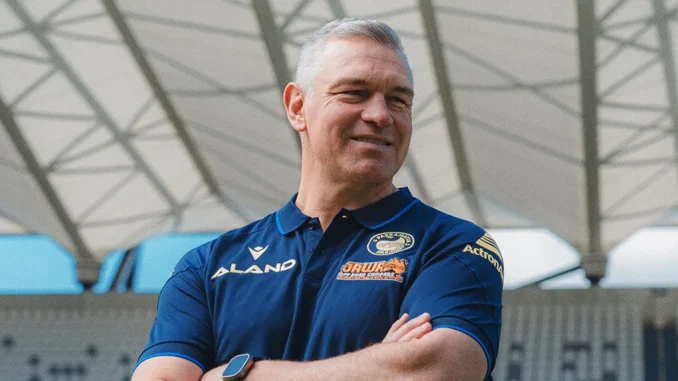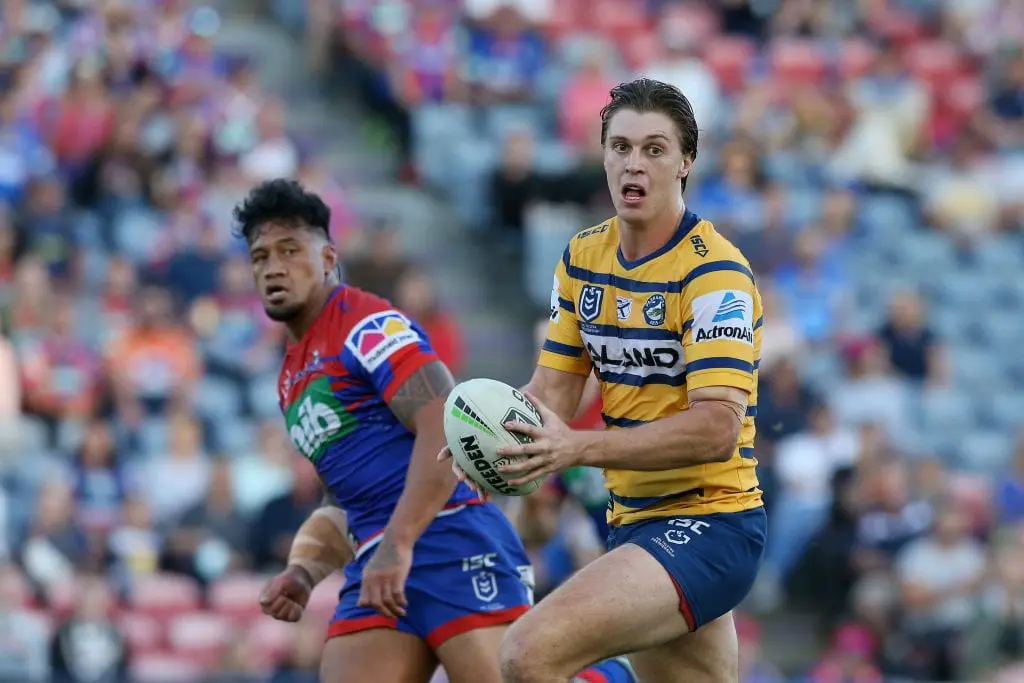
The Eels recruitment policies are hurting them again.
The Parramatta Eels may have claimed they’re moving away from relying on contract options, but they’re once again facing the harsh realities of such arrangements. The club’s recruitment strategies have increasingly drawn criticism, often seen as a weak point that hampers their ability to secure deals with current players or attract talent from rival clubs. This stems from players on their roster having too much control over their future under these contracts, effectively holding the club to ransom within the constraints of the salary cap.
While this has been a recurring issue for the Eels, the situation appears more dire than ever. Since November 1—now 27 days ago—key players like Dylan Brown, Shaun Lane, Ryan Matterson, Will Penisini, and emerging talent Saxon Pryke have been free to negotiate with other teams. These players hold the safety net of contract options at Parramatta, giving them leverage in negotiations.
For Lane and Pryke, the options are mutual, requiring agreement from both the club and the player. However, mutual options often include performance-based criteria that are typically achievable, putting the Eels in a challenging position to retain control over their roster.

David Klemmer and Christian Welch, experienced forwards for the Wests Tigers and Melbourne Storm respectively, are on similar contracts running through 2026. However, Parramatta Eels face a unique challenge: nearly half their roster for 2026 includes players with options either fully or partially in their favor, creating significant uncertainty for the club.
While specific salary cap details aren’t entirely public, it’s reported that Dylan Brown earns approximately $900,000 per year, Ryan Matterson around $600,000, Shaun Lane a similar figure, and Will Penisini $400,000 annually. Of these, Penisini is expected to command a significant upgrade if he stays with the Eels beyond his current deal. Collectively, these contracts represent over $2 million in cap space that the club cannot plan for with clarity heading into 2026.
The primary issue lies in the timing of these decisions. Under current rules, players have until mid-2025 to decide whether to exercise their options. If these decisions are delayed and players ultimately decline their options, Parramatta will be months behind other clubs in negotiating replacements. This delay could leave the Eels scrambling in a market where rival teams are already securing top talent from November 1.
Adding to the dilemma, the players with options are all starting-caliber contributors who occupy significant chunks of the salary cap. If these players wait until July to commit, the Eels are effectively stuck—they can’t pursue replacements without risking a scenario where both the original players and their potential replacements are on the books.
While this situation presents a major challenge, it could work out favorably for new coach Jason Ryles and his recruitment team if the players make early decisions. However, any delay risks hampering the club’s ability to build a competitive roster for 2026.

The Eels seem ready for a reset, and it’s uncertain how many of their four key players with 2026 options they actually want to retain. However, the issue isn’t just about who stays—it’s about how these options impact the club’s ability to negotiate for replacements. With so few player-favoring options across the competition, it’s clear why this is a pressing concern for Parramatta.
Recent reports suggest the Eels are working to remove the two years of player options in Mitchell Moses’ contract for 2027 and 2028. If left unchanged, Moses would be free to enter the open market again from November 1, 2025, which the club clearly wants to avoid.
Meanwhile, the Eels must urgently address the futures of their five players with options for 2026. Dylan Brown is the clear priority. Despite a challenging 2023 season, he remains one of the NRL’s top five-eighths and is crucial to the team’s success. On a $900,000-a-year deal with options extending through 2031, the Eels need to renegotiate and secure him long-term. With the market for quality five-eighths drying up—especially after Braydon Trindall re-signed with the Sharks—locking down Brown is non-negotiable.
Will Penisini, one of the NRL’s premier centres, should be next on the Eels’ list. His talent and consistency make him irreplaceable, especially given the limited options in the current market.
As for Ryan Matterson and Shaun Lane, their futures with the club are less certain. Parramatta might be content to let them explore opportunities elsewhere while assessing their value. Saxon Pryke, the young forward, appears the most straightforward case—he’s likely to exercise his option and remain with the team.
If Parramatta wants to rebuild effectively, they must balance immediate contract resolutions with long-term strategic planning, starting with their most indispensable players.
Leave a Reply